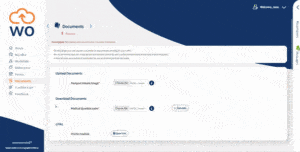If you have been putting off finding out about the Good Work Plan legislation until nearer the time – now is that time.
The Good Work Plan covers a range of changes to UK employment law that come into effect on April 6th 2020 and alter the way that new hires need to be processed.
For most hiring teams, only fairly minor changes will be required to ensure a compliant onboarding process after April 6th. But those changes still need to be made.
Here’s a look at what’s changing and how you can prepare your hiring process:
1. Delivery of written contracts of employment
What’s changing?
Employers currently have a two-month grace period within which to supply a new hire with all of their basic contractual information – known as a ‘written statement of employment particulars’.
This covers all of the main contractual information such as job role, pay and annual leave entitlements.
From April 6th, this grace period is removed. Employers need to ensure that all of this information is provided on or before a new starter’s first day.
How to prepare?
Generally, most hiring teams will provide contractual information on or before a new hire begins their job. But this may not always be the case.
When large numbers of hires are having to be processed or there’s an urgent need to fill a particular role, paperwork is liable to be completed after an employee has started.
So you need to have effective checks in place to ensure that all new starters receive their written statement of employment particulars on or before day one.
Cloud-based management systems such as Webonboarding can integrate notifications, reminders and alerts into the HR process.
2. Changes to contents of written contracts
What’s changing?
The information that an employer is legally required to provide a new hire is being revised. In addition to the basic details about the job role, pay and holiday entitlements, the Good Work Plan legislation adds some new requirements.
These are:
- Providing typical patterns of hours/days
- Variability in hours/days required
- All forms of remunerations and benefits – not just pay
- Details of any kind of training required
- Information on any probationary periods
How to prepare?
Many of these elements are liable to be covered by a written statement but contracts and offer letters need to be reviewed to ensure they fully comply.
One area to look out for is the use of generic documentation to cover several different roles. The Good Work Plan changes make it important to accurately communicate information that’s accurate and relevant to each specific position.
3. Documentation required for agency workers
What’s changing?
The Good Work Plan changes introduce a requirement to provide any agency workers that you hire with a ‘Key Facts’ document. This needs to be shared on or before the person starts work and contains all the basic details such as pay, contract type and employment structure.
How to prepare?
As this is a new requirement, this is a document that many hiring teams will need to create. The onboarding process needs to be adapted so that all agency workers receive this information before starting in their role.
4. Determining correct tax status of new starters
What’s changing?
Along with changes to UK employment law, April 6th also marks the introduction of new IR35 tax rules which affect the way new hires are handled.
The main change is a shift of responsibility onto employers to determine the correct tax status of each new hire. This is currently the responsibility of the individual contractors.
It’s a complex and contentious area of legislation. The UK Government recently announced a ‘light touch’ policy with no fines being imposed for the first 12 months.
How to prepare?
Hiring teams will need to have a process in place to determines the correct status of each new hire. They will need to share this information during onboarding by providing a Status of Determination Statement (SDS).
This is a written determination of whether IR35 applies to the role and the reasoning for the decision. A failure to provide this information or to carry out a proper test will leave organisations liable to pay fines and retrospective tax.
The complexity and ‘shifting sands’ nature of this legislation means expert advice is required.
Summary: Automating the onboarding process
It’s important not to lose sight of why all of these changes are being made. It’s an attempt to find simpler and fairer ways to handle the increasingly challenging demands of today’s employment environment.
It’s a task in which employee onboarding has a vital role to play. With automated processes and paperless ways to handle contracts and offer letters, hiring teams have the tools they need to comply with all of the Good Work Plan requirements.




